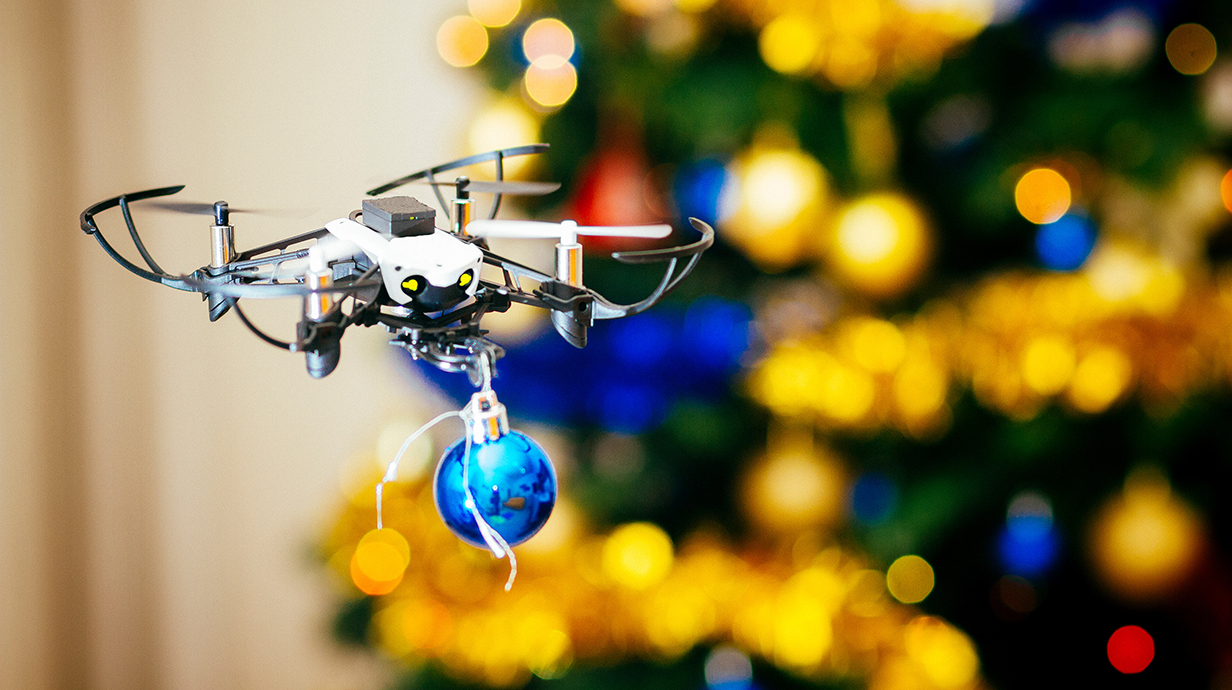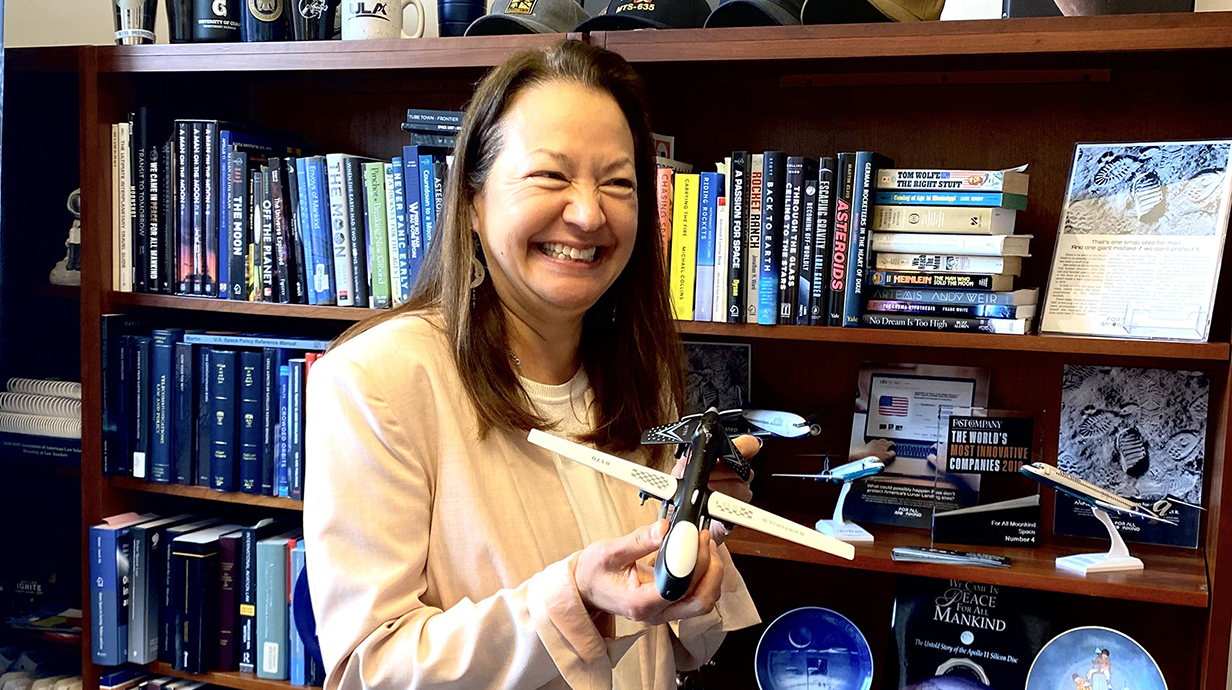News You Can Use: You Got a Drone for the Holidays. Now What?
Ole Miss expert explains how to fly safely, stay legal and avoid hefty FAA fines this holiday season

OXFORD, Miss. – They perform spectacular shows at amusement parks and sporting events. They deliver medicine and help monitor security. They make great gifts. What are they?
Drones.
While many people may think they are toys – and some can be – drones are actually considered aircraft. So, the excitement of a new Christmas present may come with certain laws and regulations, depending on the size of the drone just unwrapped.

A drone encompasses a broad range of things, said Michelle Hanlon, executive director of the Center for Air and Space Law at the University of Mississippi.
"A drone is essentially a robot, anything that moves without a human directly on board," she said. "That covers everything from the quadcopter your kids might get for Christmas to the sophisticated uncrewed aerial systems we use for emergency response and research.
"At the University of Mississippi, we're really focused on what we call UAS, uncrewed aerial systems, because they're fast becoming a core part of aviation."
Uncrewed aerial systems can be purchased from Amazon and given as gifts. And if the drone is less than 0.55 pounds, the owner doesn't have legal obligations to navigate.
If the drone is larger than that, things get complicated.
"If it's larger than 0.55 pounds, you need to register the drone with the Federal Aviation Administration and have a license to operate it," Hanlon said. "It surprises a lot of new hobbyists, but once you cross that threshold, you are stepping into the national airspace system and that comes with responsibilities."
Because larger drones are considered aircraft, the FAA oversees their operation and regulations.
"They are regulated just like aircraft," she said. " They operate in low-altitude airspace, but that airspace is still managed under federal authority.
"That includes questions about who controls the air above your backyard, what counts as safe operation, and how to avoid interfering with other aircraft, including helicopters, medical flights and even commercial space launches."

Michelle Hanlon, director of the university's Center for Air and Space Law, displays a replica of a commonly used uncrewed aerial system. These and other types of drones are popular with hobbyists and can be given as gifts, but many of them are subject to strict regulations on their use and operation. Photo by Debbie Nelson/Office of Research and Economic Development
If a drone is flying over a person's backyard during a cookout or while a person is sunbathing, the question of invasion of privacy may arise. What should be done?
"You cannot shoot it down," Hanlon said. "Drones are aircraft. If you shoot down a drone, no matter the size, it is a violation of federal law and you could injure someone or damage property."
Instead, contact your local law enforcement agency.
"Drones in the United States are supposed to have a remote identification code," she said. "Local law enforcement should be able to contact the FAA or the Department of Homeland Security and determine whether that drone is being operated legally or not. That system is designed to protect the public while still allowing responsible hobbyists to fly."
Just as drones operated legally can be viewed as fun or nuisance, they can also be helpful.
Some of the helpful uses include:
- Crowd control
- Providing first responders with information about an incident while they travel to the scene
- Firefighting and fire control
- Searching for missing persons using heat sensing tools
- Delivery of medications.
Hanlon emphasized that these benefits stem from lawful, trained and responsible operation.
To ensure that you and your new drone are following the law, especially if the drone is larger than 0.55 pounds, here's what to do:
- Visit the FAA website and go to the "Drones" section
- There, you can register your drone and determine how it will be used – recreational or commercial
- Then, depending on how your drone will be used, take the appropriate training and testing to become licensed.
"A well-trained drone operator is an asset to their community, whether they're capturing beautiful holiday footage or helping responders in a crisis," Hanlon said.
"Learning the rules isn't a burden, it's a ticket to a whole new world of what these remarkable little aircraft can do. Fly smart, fly safe and enjoy the view."
Top: Drones are popular holiday gifts, but many of them are subject to federal regulations and oversight. An Ole Miss expert offers several tips on operating a drone safely and legally. Adobe Stock photo
By
Marisa C. Atkinson
Campus
Office, Department or Center
Published
November 19, 2025
